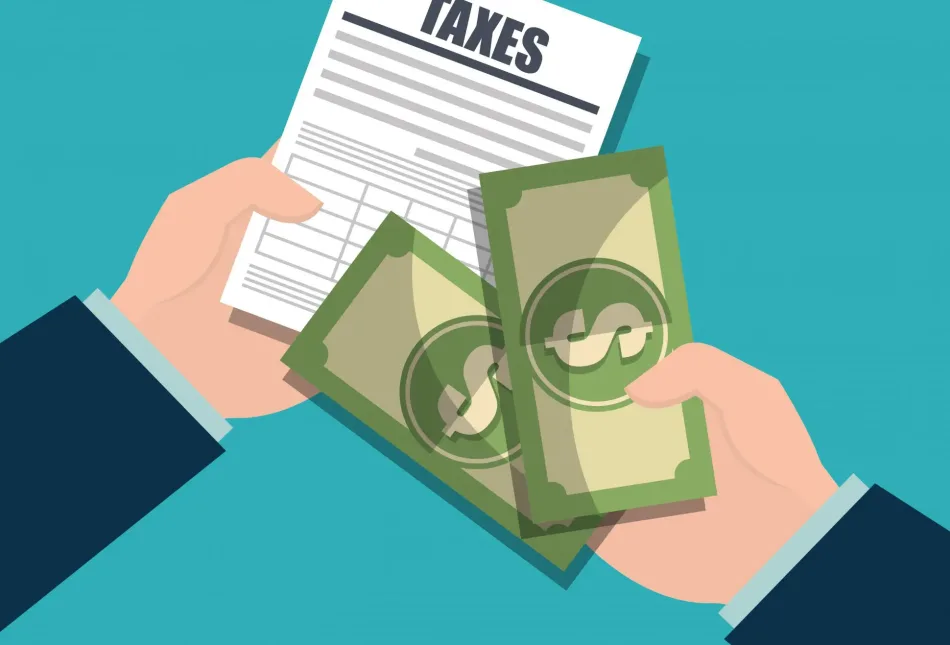Gov.’s attempt to claim role of ‘tax-cutter’ laughable

The following op-ed appeared in the Las Cruces Sun-News on December 28, 2021.

Recently, Gov. Lujan Grisham posted on Facebook in support of her plan for a small .25 percentage point reduction in the State’s gross receipts tax rate, saying, “Lower taxes would enable them to grow their business and hire more people, including local adults with special needs that they focus on employing – and we’re going to make it happen.”
It sounded almost like something we at the free-market Rio Grande Foundation would write and
the Gov.’s statement is true as far as it goes. While we support ANY effort to lower tax burdens on New Mexicans, Lujan Grisham’s plan for a small .25 percentage point reduction in the State’s GRT is totally inadequate and clearly driven by her coming reelection and the fact that she faces a very tough race.
According to the Gov., her plan would cut taxes by $145 million annually. But since she took office, Lujan Grisham has signed tax hikes totaling more than $250 million annually. She also conveniently omits the fact that the oil and gas industry has created a $1.6 billion surplus, the likes of which New Mexico has never seen. Clearly given the economic trials facing average New Mexicans, we deserve much more than a tiny tax cut that fails to even make up for her past tax hikes.
The very same thing the Gov. claims about lower taxes helping people grow their businesses were said in opposition to tax hikes she signed into law in 2019 (HB 6) and 2021 (SB 317). Among the tax hikes passed in these bills were hikes in personal income, motor vehicle, hospital, and health insurance taxes. Clearly, as with gross receipts taxes, much of the burden of these tax hikes is also borne by businesses and affects their ability to hire and grow their businesses.
Worse, none of these tax hikes were necessary. The 2019 tax hikes were passed at a time of record budget surpluses alongside an 11 percent budget increase. The 2021 tax hike was a blatant revenue grab. The Democrat-controlled Legislature and Gov. Lujan Grisham were presented with an opportunity to generate millions of additional tax dollars by re-imposing (and retaining the proceeds from) a federal health insurance tax that had been repealed by the Trump Administration.
Simply allowing the federal government’s health insurance tax (imposed under ObamaCare) to go away would have had the very same positive impacts on businesses and their bottom lines as any other tax reduction, but that wasn’t an election year. This is.
Directly imposing higher taxes is only one of numerous ways in which government makes doing business harder than necessary. In her time in office Lujan Grisham signed a new medical malpractice law that doctors and other medical professionals say will cause them to close or leave. The Energy Transition Act has already begun increasing electricity costs and PNM is concerned about reliability as soon as next summer due to the closure of San Juan Generating Station.
While the Gov. is busy positioning herself as a pro-business “tax cutter” she is also pushing a new “Clean Fuel Standard” that, based on a draft of the bill, would increase gasoline prices by 35 cents per gallon. Every New Mexico business and resident (even if they drive an electric vehicle) would see further price hikes above and beyond current inflation if that bill becomes law.
Sadly, the impact of these anti-business law is to keep New Mexico poor. It is no surprise that New Mexico has one of the highest unemployment rates in the nation despite the massive oil and gas surplus.
Lujan Grisham’s management of New Mexico’s economy both before and throughout the Pandemic have been abysmal and her claim to be a pro-business “tax cutter” are laughable.
Paul Gessing is president of New Mexico’s Rio Grande Foundation. The Rio Grande Foundation is an independent, nonpartisan, tax-exempt research and educational organization dedicated to promoting prosperity for New Mexico based on principles of limited government, economic freedom and individual responsibility
